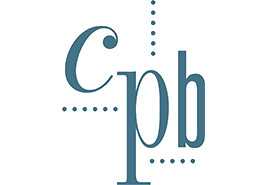Our services
Centre de Psychologie Behaviorale
Consultation, assessment and treatment

Children and Adolescents
Assessment:
Intellectual, psychological and school-related difficulties.
Treatment:
Behavior problems, adjustment difficulties at school or in the family, learning difficulties, phobias, interpersonal difficulties, shyness, psychosomatic difficulties, sexuality related difficulties, depression.

Adults
Assessment and treatment:
Stress, generalized anxiety, phobias, panic disorder, post-traumatic stress disorder, obsessive-compulsive disorder, hypochondria, psychosomatic disorders, chronic pain, burnout, depression, bipolar disorder, addictions, relationship difficulties, personality disorders, attention deficit, support for individuals or families with a member who has mental illness or intellectual deficit, individual therapy for intellectual deficit.

Couples
Assessment and treatment:
Communication difficulties, task sharing, parenting skills, sexual difficulties, infidelity, internet dependency, cultural differences.
Supervision to students and professionals working in mental health
- Our supervision services are offered on an individual or group basis and can be tailored to specific needs, for example, introduction to cognitive behavioral therapy or expanding knowledge.
- Supervision can also be based on specific clinical cases.
Special services offered to industries and organizations
- Rehabilitation centers for developmental disabilities
- Consultation/supervision for treatment teams
- Psychological and intellectual assessment of clientele
- Assessment, treatment plan and follow-up for complex difficulties (dual diagnosis, severe behavior problems)
- Psycho-legal expertise
PSYCHEDELIC THERAPY
The use of classic (magic mushrooms, LSD, DMT) and atypical (ketamine, MDMA, Ibogaïne) psychedelics in psychotherapy dates back to the 50s and 60s. Our knowledge of their efficacy was interrupted for 30 years when they were banned in the 70s. Research only resumed in the early 2000s.
Today, there is a high-profile interest in a return to the use of these substances in therapy. Various disorders are targeted, with major depression and end-of-life anxiety at the top of the list. There are indications that this form of intervention may provide faster relief from depression than traditional treatments, even in resistant forms.
OUR POSITION
While very promising results have been reported in the scientific literature, we’re still at the dawn of quality research on hallucinogens.
We still have a lot to discover about the method of administration, the therapeutic mechanisms underlying their efficacy, the risks and the indications for treatment. For example, which hallucinogen is effective with which psychological disorder, and at what dose? The type of psychotherapy accompanying pharmacological intervention also remains a matter of debate. Experience has taught us that hallucinogens are only effective in the context of psychotherapy, involving a strong relationship of trust between patient and therapist.
To protect the public, our position is therefore to proceed with the utmost caution, firstly in disseminating current knowledge, and secondly in administering these treatments. This caution will be reflected firstly in the rigorous selection of patients to be offered this treatment, in the treatment protocols, which will have to be approved by university ethics committees, and in the accompaniment by two psychologists (male, female, non-binary) during their psychedelic experiences. Last but not least, patients will be helped to do their homework before embarking on these treatments. We believe that informed choice is fundamental to this type of intervention.
PREVENTING THE RISKS OF HALLUCINOGEN USE
We are aware that some members of the public, exposed to information provided by the media and wanting to stop suffering, will seek to self-medicate with hallucinogens. Considering that these substances remain illegal, of uncontrolled quality, and carry the risk of adverse reactions, the CPB wishes to offer a prevention service on the risks associated with the use of hallucinogens.
While the best way to use hallucinogens in therapy is still being researched, we have long been aware of the conditions that minimize the occurrence of a state of crisis: The Bad Trip.
This service will aim to reduce these risks by providing information on:
The latest scientific knowledge on psychedelic therapy
Conditions of physical and psychological vulnerability that are contraindications to their use
Voluntary services where the quality of hallucinogens can be assessed
The preparation required, as well as the famous “set and setting”, for a safer psychedelic experience
Safety precautions to consider
What to do in the event of a Bad Trip
It will also be possible for other clients to discuss their experiences under the influence of psychedelics from the perspective of therapeutic integration, following the model used for cognitive-experiential dream analysis or the Act model.
Finally, we are aware that hallucinogens are still used for controversial purposes. Our approach is based on humanist values of respect for the individual, freedom of choice, equality, tolerance and pacifism.
F.A.Q.
Laboris nisi ut aliquip ex ea commodo consequat aure dolor in reprehen erit in voluptate velit essillum dolore eu fugiat nulla.
Laboris nisi ut aliquip ex ea commodo consequat aure dolor in reprehen erit in voluptate velit essillum dolore eu fugiat nulla.
Laboris nisi ut aliquip ex ea commodo consequat aure dolor in reprehen erit in voluptate velit essillum dolore eu fugiat nulla.
